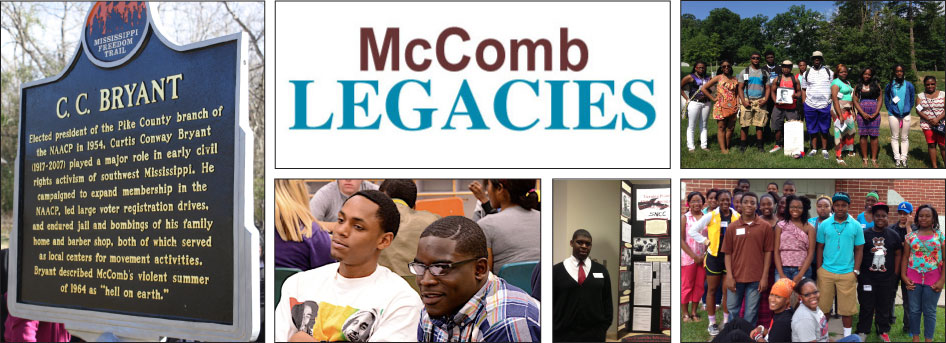Featured
Students Skype With History: Tinker v. Des Moines to Trayvon Martin
Trayvon Martin Silent March: In March, the 8th grade Local Culture students conducted a silent protest march in the junior high halls wearing signs during lunch showing their outrage of over Trayvon Martin’s murder and their disillusionment that no arrest had been made at that time. Prior to the protest, students researched past student protests.
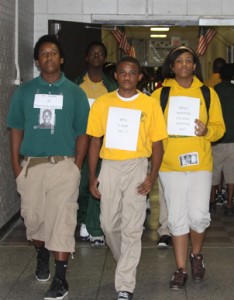
Students at Denman JHS in March, 2012
They found a Supreme Court case decision (Tinker v. Des Moines) that ruled that students had the right to wear armbands to school to protest the Vietnam War. During the case Justice Abe Fortas emphasized that students have First Amendment rights. He also said that students were exhibiting a silent, passive expression of opinion that did not interfere with the school’s work or the rights of other students.
Skype with History: In May, the class had the opportunity to Skype with Mary Beth Tinker, co-defendant in the Tinker v. Des Moines School District case.
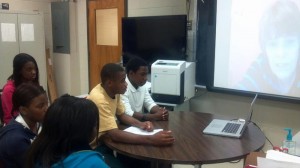
Students have conversation via Skype with Mary Beth Tinker in May, 2012.
Students asked Tinker how she got involved in the 1965 protest. She explained that her father, a Methodist minister, believed in living according to his teachings and that meant letting his voice be heard when something was wrong. He lost his job at a couple of churches because of those convictions. Tinker watched her parents take a stand against discrimination when African American children were not allowed in the city swimming pool. Her parents also travelled to Ruleville, Miss. in 1964 during Freedom Summer. Meanwhile, television was making the bringing the realities of war and racism home to everyone for the first time in U.S. history. Tinker learned of innocent kids being killed in the Vietnam War and four young girls killed in the bombing of Sixteenth Street Church in Alabama. Her parents’ actions and the recent news stories made her want to do something herself.
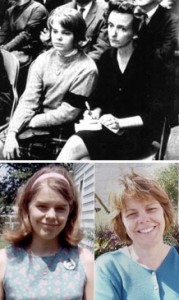
Mary Beth Tinker with her mother during court trial and today
Tinker, her brother, and their friend Christopher decided to wear black armbands to school to protest the Vietnam War. Mary Beth and John’s parents did not want them to participate in this protest at first, but when Mary Beth reminded her parents that she and John were following the example they modeled for them, their parents understood and were supportive. Mary Beth, John, and Christopher were suspended because officials said that the armbands were a disruption to other students.
The family did not have the money to hire a lawyer, but the ACLU heard about the case and offered to help the family. The case was taken to the Supreme Court and the judges ruled in favor of the young people with a 7-2 vote.
Mary Beth thinks that the ruling in Mississippi in Burnside v. Byars helped their case.
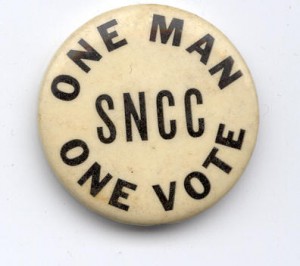 In Burnside v. Byars, students were suspended for wearing “One Man, One Vote– SNCC” buttons after three civil rights workers were killed in Philadelphia, Miss. The Appeals Court ruled in favor of the students in 1967 and in favor of the young people in the Tinker v. Des Moines ruling also.
In Burnside v. Byars, students were suspended for wearing “One Man, One Vote– SNCC” buttons after three civil rights workers were killed in Philadelphia, Miss. The Appeals Court ruled in favor of the students in 1967 and in favor of the young people in the Tinker v. Des Moines ruling also.
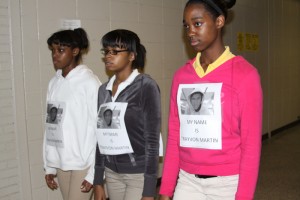
Students at Denman JHS in March, 2012
When Tinker asked Local Culture students if they had been involved in any activism this year, they told her about the Trayvon Martin silent march and how they expressed their concerns when plans for a field trip changed. She explained that research shows that young people’s brains are geared to action and that they should take action when necessary because kids have rights too.
